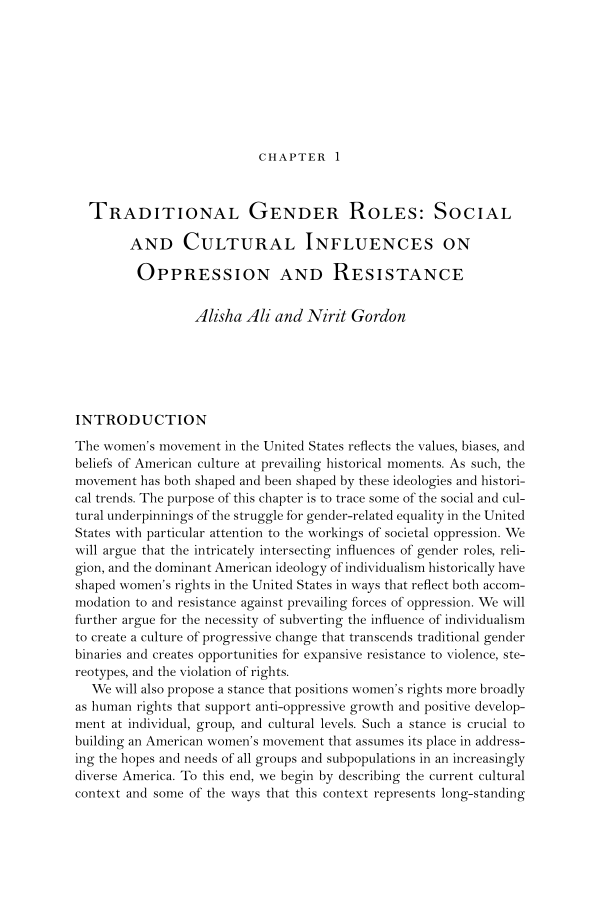chapter 1 Traditional Gender Roles: Social and Cultural Influences on Oppression and Resistance Alisha Ali and Nirit Gordon INTRODUCTION The women’s movement in the United States refl ects the values, biases, and beliefs of American culture at prevailing historical moments. As such, the movement has both shaped and been shaped by these ideologies and histori- cal trends. The purpose of this chapter is to trace some of the social and cul- tural underpinnings of the struggle for gender-related equality in the United States with particular attention to the workings of societal oppression. We will argue that the intricately intersecting infl uences of gender roles, reli- gion, and the dominant American ideology of individualism historically have shaped women’s rights in the United States in ways that refl ect both accom- modation to and resistance against prevailing forces of oppression. We will further argue for the necessity of subverting the infl uence of individualism to create a culture of progressive change that transcends traditional gender binaries and creates opportunities for expansive resistance to violence, ste- reotypes, and the violation of rights. We will also propose a stance that positions women’s rights more broadly as human rights that support anti-oppressive growth and positive develop- ment at individual, group, and cultural levels. Such a stance is crucial to building an American women’s movement that assumes its place in address- ing the hopes and needs of all groups and subpopulations in an increasingly diverse America. To this end, we begin by describing the current cultural context and some of the ways that this context represents long-standing
Document Details My Account Print multiple pages
Print
You have printed 0 times in the last 24 hours.
Your print count will reset on at .
You may print 0 more time(s) before then.
You may print a maximum of 0 pages at a time.














































































































































































































































































































